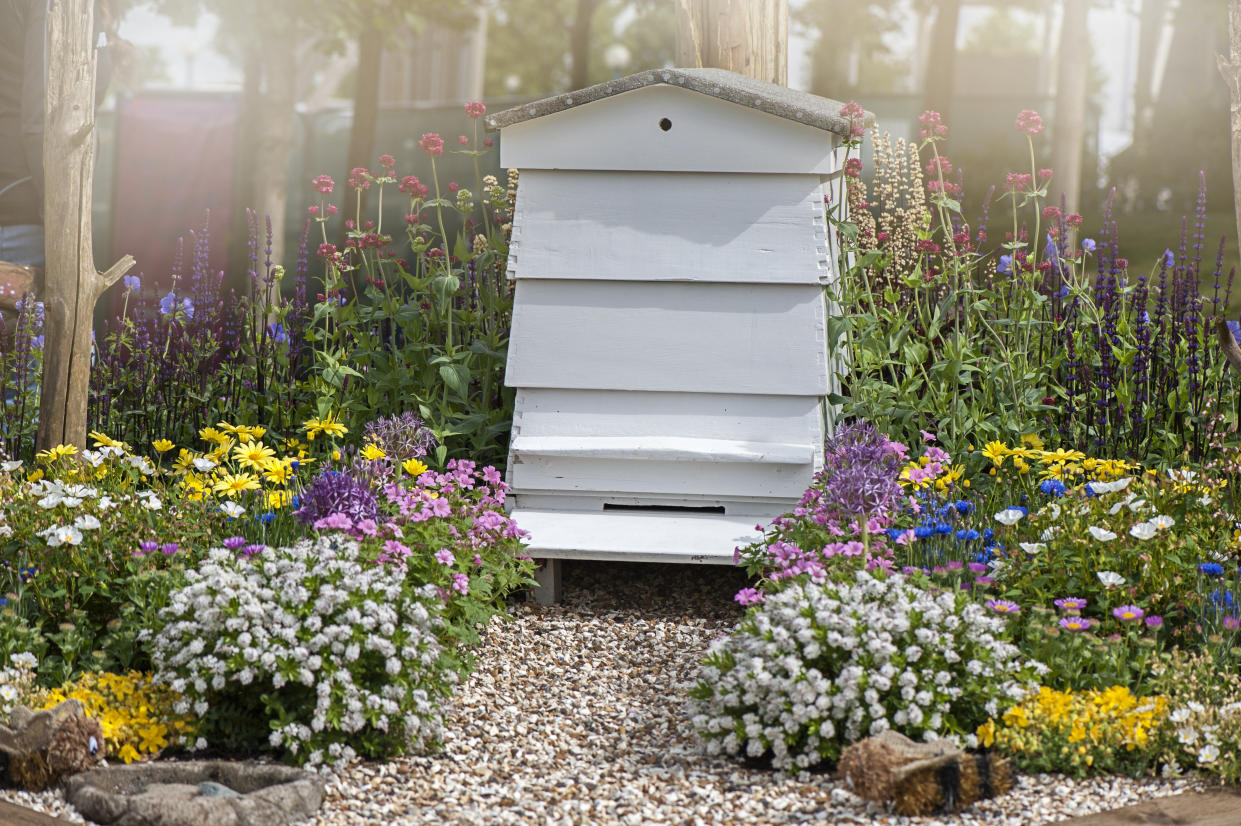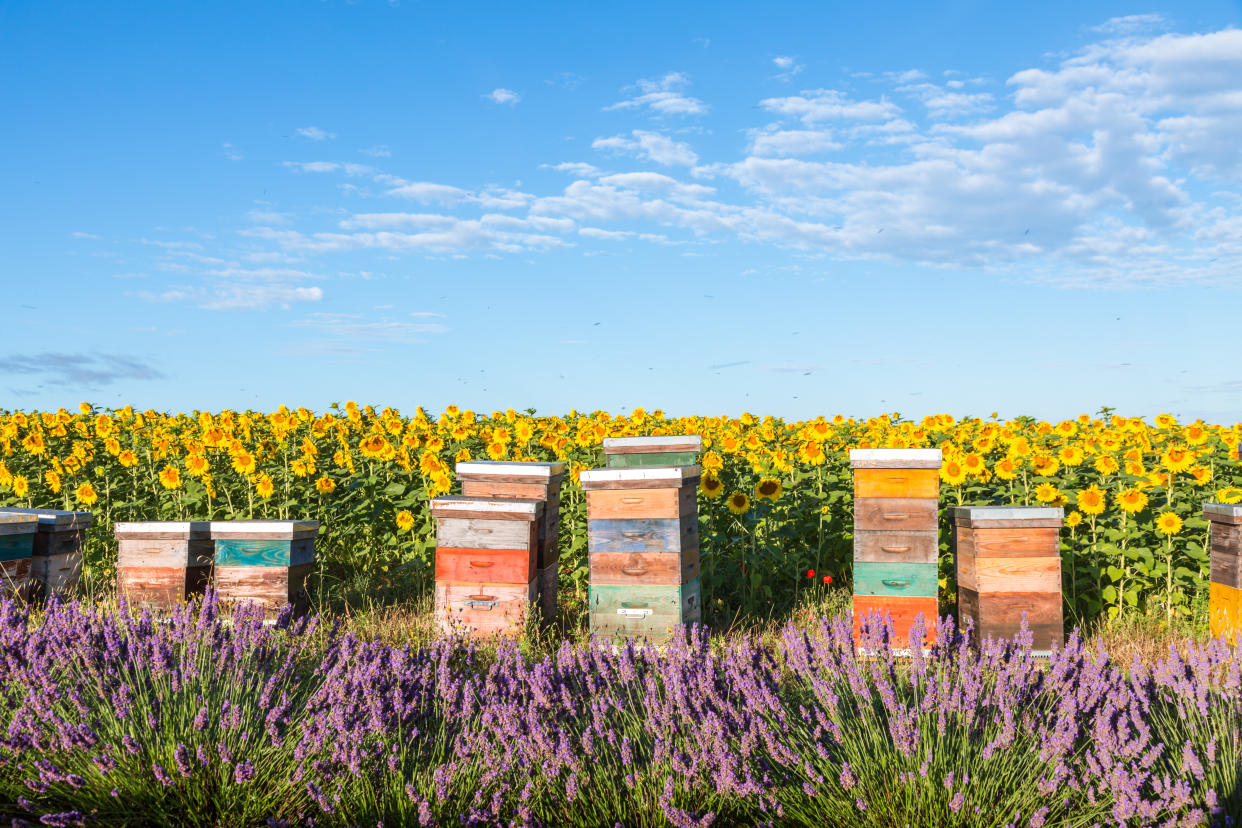Oh bee-hive! Everything you need to know about beekeeping
Watch this: How to start a beehive
Kate Middleton recently caused a buzz (sorry) when she revealed that she keeps her own bees. Presenting a jar of home-made honey to a group of school children, she invited them all to have a taste.
And the Duchess is in good company with her new hobby - beekeeping has gone well and truly mainstream.
Read more: Duchess Kate dabbles in bee keeping
David Beckham, Ed Sheeran and Leonardo DiCaprio are all also keen apiarists, and beekeeper Erika Thompson has 1.8 million followers on TikTok.
You don't need to live in a country cottage, either - urban beekeeping is massively on the rise, particularly in innovative rooftop spaces.

But if you want to become a bee keeper, where on earth do you start?
"The best way is to join a local beekeeping club," Alex Conti of The Apiarist, a family-run business making honey-infused gin and other bee-tastic delights, tells Yahoo.
"This gives you a ready-made network of like-minded people who can help you learn the craft and can provide ongoing support."
"There are also a variety of online courses as well as endless materials online, from videos to podcasts to journals and blogs.
That’s over and above the hundreds of online groups where you can interact with other beekeepers, ask questions and generally look for advice."

To find a beekeeping club near you, check out the British Bee Keeper's Association.
Above all else, it's important to get some experience before you commit to buying any equipment - or, indeed, any bees.
Read more: Bee happy - how to start a beehive at home
"Go to a beekeeping experience day before you do anything," says Alex. "People often don’t realise how intense an experience it can be, so make sure you like it first."
It's important to make sure you have enough time to devote to your bees, too - beekeeping is ultra-low maintenance in the winter, but between around April and July you will need to devote at least an hour a week to your hive.

While the amount you spend will depend on the kind and size of hive you buy, you will need to shell out on a protective suit, tools and a smoker (to harmlessly subdue the bees).
"A training course should be less than £100, a bee hive around £500, a bee suit £50, hive tool £5 then the bees should cost around £125 for your first colony," said Sara Ward, who runs urban smallholding Hen Corner.
You may, of course, be able to pick everything up much cheaper second-hand.
Taking up bee keeping isn't something to take lightly, and it can be dangerous for both you and your bees if you don't take it seriously.
Nevertheless, there are multiple reasons why it has so many fans - and it's not just about the delicious, organic honey that you might be able to harvest, or helping to save the endangered honey bees (which has multiple repercussions for our entire food chain).

"There are many studies emphasising the positive benefits of beekeeping, particularly with regards to mental health," says Alex.
"The bees demand that you focus mentally on the job at hand and you’ll find yourself immersed in their world; nothing else enters your mind.
"It can be very detoxifying when you consider the rest of our day is generally filled with an overwhelming array of stimuli and general worries."
"As well as the fascinating reward of watching tiny insects work together to nurture each other and sustain themselves throughout the year, I find there’s a sense of peaceful mindfulness when I’ve got my head in a hive," agreed Sara. "Nothing else matters in that moment."
Watch this: Top tips for bee keeping


